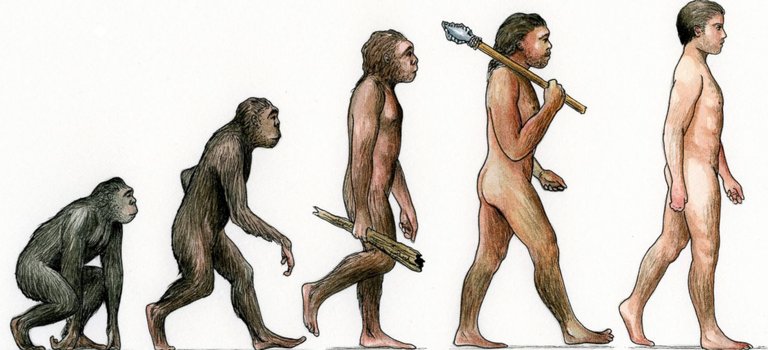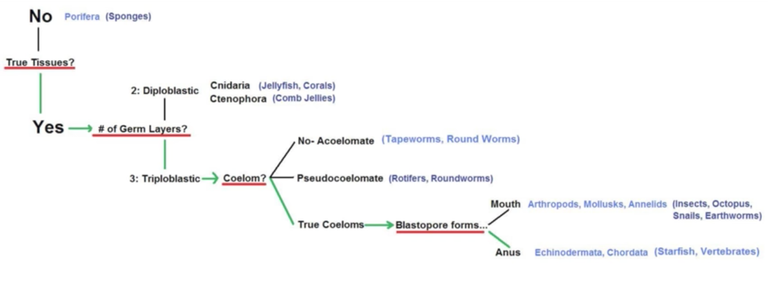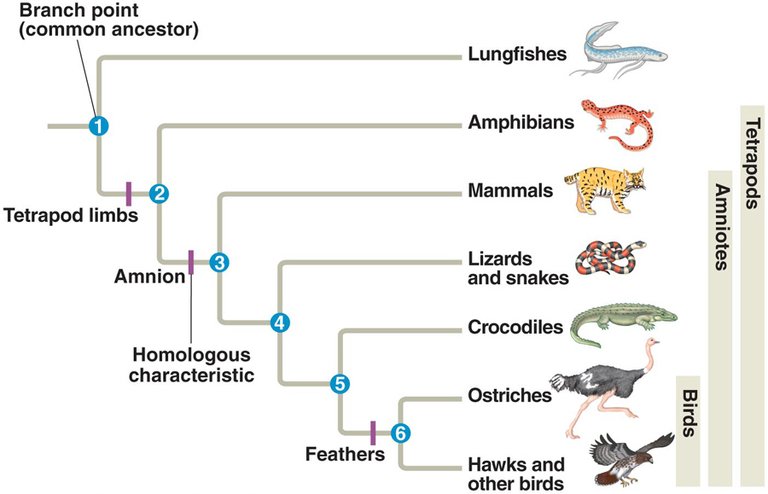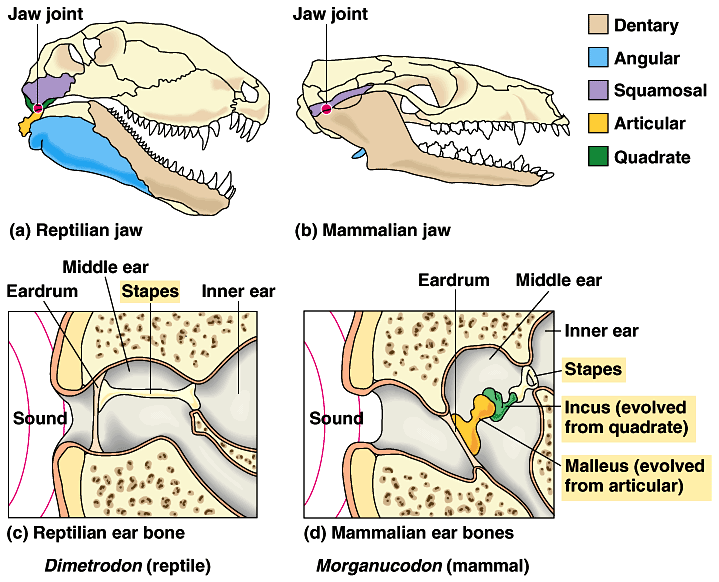This is my argument to demonstrate why every rational person should accept, or at the very least consider evolution. I'd like to begin by demonstrating the concept of independent verification. It’s the idea that when evaluating something, it's more likely to be true if multiple methods using completely independent mechanisms or data arrive at the same conclusion. Let's say there's a famous historical tree I want to know the age of. I use carbon dating and the age comes back to about 300 years old. Now let's assume that this tree is historical because it was planted outside the Hungarian palace the day Leopold the 1st, King of Hungary, died. Now it's known that he died in May of 1705 thus validating independently of radioactive decay that the tree is about 310 years old.
Finally, using dendrochronology, the science of using tree-ring dating, this independent method arrives at the tree being 305 to 310 years old, thus validating yet again that the tree was planted in roughly 1705. The point that I'm trying to illustrate here is that with each independent method of data collection with the matching result, the higher the probability of accuracy becomes.

The carbon dating and dendrochronology provide a higher probability of accuracy than the trees historical significance alone. Let's move on to evolution. When assessing relatedness, there are certain diagnostic characteristics that organisms have. For the most part these represent a major evolutionary breakthrough, a new toy that's never been seen before. For example, let's look at invertebrates in the diagnostic characteristic of true tissues. The only animals that lack them are sponges, all others have them. Next we can look at the number of germ layers an organism have. Only cnidarians and ctenophores, which are basically jellyfish, have two, and all others have three.

Next we can look at whether or not an organism has a body cavity. Tapeworms lack one, rotifers have a false pseudo-coelom, and all other organisms do have a true body cavity. Now imagine sticking your thumb into a tennis ball. That's the shape of an early developing embryo and the thumb indention is called a blastopore. In organisms like insects, it forms the mouth. You will never ever find an insect where the blastopore forms the anus, or one without a coelom, one with two germ layers, or one without true tissues. Prayer starfish and vertebrates the blastopore forms the anus. The point however is that we can use these different features which are responsible for creating the unmistakable effects in the forks in the tree of life, and construct an unambiguous history of life on Earth. Now this tree like pattern or descent with modification is a fingerprint of evolution, and it's only explainable by evolution. It’s so reliable in fact that it's the basis of field guides. If you've ever wanted to identify a plant in the wild you start by assessing the number and arrangements of leaves flower presents, until you arrive at the answer. Now this method relies solely on the fact that all life shares a common ancestor and each feature being identified represents a fork in the road of evolution. Following it correctly invariably leads to the correct answer.
Now that we've seen how embryology points strong that evolution let's look at a completely different field; comparative anatomy. Evolution predicts that structures will change over time as life progresses. As such, we should expect to find specific similarities in the bodies of organisms that share a common ancestor. Now it's very important to note that a similarity alone is not enough. We have to find a distinct pattern of similarities and differences where needed. After all human and apes having very similar anatomical arrangements would mean absolutely nothing if they were cold blooded, had genes for making feathers, or laid eggs. As such, it's not just the similarities, rather it's a distinct pattern and location of those similarities and differences that is necessary for them to mean anything. So for example, let's take a look at the vertebrate limb… which of these limbs is not like the other?

Notice that these tetrapod limbs are all similar to one another because they are all built from many individual bones, and they're all spin-offs of the same basic design. You’ve got one long bone, the Humerus, attached to two other long bones, the radius and the ulna, with a branching series of smaller bones on the end. From this data we can construct a phylogenetic tree, which after all is a fingerprint of evolution, and test it. Now let's look at one such tree. Here we have a common ancestor in some of the organisms descending from it. Let's go one step further though. What would we predict to find if evolution is true? We know the beginning and the end, so if evolution is true, when we look at the organisms in the middle we should find these bones in the process of changing. A quick glance at the jaws and ears of reptiles and mammals will show you that they're very different.

From embryology, it's undisputed that we know that in reptiles the quadrate in articular bones develop into two bones in the lower jaw while in mammals they develop into two bones in the middle ear. Interestingly, the reptilian middle ear only has one bone while the mammalian middle ear has three. So if evolution is true what must have happened is that the quadrate articular bones in the reptilian jaws were changed and re-adapted to form the two additional bones in the mammalian middle ear. How can evolution confirm this? Again, by looking at the fossils of the organisms in between the start and end points. When we do this, we find the precise changes needed to confirm evolution. That is, we see the quadrant articular bones of the reptilian jaw being pulled back and modified for function in the middle ear. Now amusingly enough, it's not just one fossil in-between that shows these changes, there are dozens demonstrating this precise change in the perfect sequence needed. Furthermore, when you actually go back and date the fossils, they are all in the perfect age. Now by starting with these basal characteristics and working our way accordingly to life as we see today, we can clearly see that these structures are subtly changing over time. This can in fact be used to construct a phylogenetic tree based solely on the data from comparative anatomy.

In fact, not only can this be done for an organism as a whole, it can be done for any single bone in the body, or any nerve, vein, artery, cartilage, muscle, or tendon for that matter. As such, the number of trees that we can make from organisms on and their anatomical configurations are virtually limitless. Now perhaps you can see why evolution is called the unifying theory of biology because we've just taken comparative anatomy and the jawbone of a reptile and we've confirmed it and related it to both the fossil record and embryology. Now let's take a look at the fossil record. If evolution is correct, we would expect to see life progressing from simple to more complex as time goes on. We can predict that we will never find a complex mammal lying next to trilobites, we'll never find a human being with or before dinosaurs, and we'll never see a poodle from the Permian era. So when we actually look at the fossil record, we find just that there's a clear pattern of common descent attributable only to evolution from the fossils and the relative ages alone, we can construct a phylogenetic tree based solely on the fossil record. And as a matter of fact, not only do we have that for the fossils in general, but we can do this for specific traits. Such analysis is dependent on transitional fossils to show how these features are being modified and changing over time. So please note before you parrot the old creationist argument that there are no transitional fossils, there are dozens of examples. I just demonstrated one example with the reptilian and mammalian middle ear but there more, and more importantly they yield the same results.
This wraps up the first part of my argument for evolution. Part 2 is forthcoming.
Let me know your thoughts! Do you have a different perspective?
Macro Evolution Is a lie. Biogenesis Is the Truth, you only get life from life.